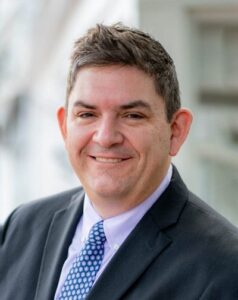Judge Rebuffs Family’s Bid to Change Grade in AI Cheating Case
Preliminary federal court ruling says school rightly imposed discipline over academic integrity rules.

Get stories like this delivered straight to your inbox. Sign up for The 74 Newsletter
A federal judge in Massachusetts has rejected a request by the parents of a Boston-area high school senior who wanted to raise a key grade this fall after teachers accused him of cheating for using artificial intelligence on a class project.
In a ruling denying immediate relief to the student, filed Wednesday, U.S. Magistrate Judge Paul Levenson said nothing about the case suggests teachers at Hingham High School were “hasty” in concluding that the student and a classmate had cheated by relying on AI. He also said the school didn’t impose particularly heavy-handed discipline in the case, considering that the students had violated the school district’s academic integrity rules.
An attorney for the family on Friday noted the ruling is merely preliminary and that “the case will continue” with more discovery. But a former deputy attorney general who follows AI in education issues said the likelihood of the family winning on the merits in a trial “look all but over.”
After an Advanced Placement U.S. History teacher last fall flagged a draft of a documentary script as possibly containing AI-generated material, the pair received a D on the assignment and were later denied entry into the National Honor Society. The group’s faculty advisor said their use of AI was “the most egregious” violation of academic honesty she and others had seen in 16 years.
Jennifer and Dale Harris, parents of one of the students, sued the district and several school staffers in September, alleging that their son, a junior at the time and a straight-A student, was wrongly penalized. If the judge didn’t order the district to quickly change his grade, they said, he’d risk not being admitted via early admission to elite colleges.
He has not been identified and is referred to as “RNH” in court documents.
The complaint noted that when the students started the project in fall 2023, the district didn’t have a policy on using AI for such an assignment. Only later did it lay out prohibitions against AI. But in court testimony, district officials said Hingham students are trained to know plagiarism and academic dishonesty when they see it.

While he earned a C+ in the course, the student scored a perfect 5 on the AP US history exam last spring, according to the lawsuit. He was later allowed to reapply to the Honor Society and was inducted on Oct. 15. Ultimately, the school’s own investigation found that over the past two years, it had inducted into the Honor Society seven other students who had academic integrity infractions, said Peter S. Farrell, the family’s attorney.
In his ruling, Levenson said the case centered around simple academic dishonesty, and that school officials could reasonably conclude that the students’ use of AI “was in violation of the school’s academic integrity rules and that any student in RNH’s position would have understood as much.”
The students, he said, “did not simply use AI to help formulate research topics or identify sources to review. Instead, it seems they indiscriminately copied and pasted text that had been generated by Grammarly.com” into their draft script.

Levenson said the court doesn’t really have a role in “second-guessing the judgments of teachers and school officials,” especially since the students weren’t suspended. Farrell on Friday said he expected the case to continue, but Benjamin Riley, founder of Cognitive Resonance, a think tank that investigates AI in education, said the judge’s ruling suggests the family’s chance of winning in a trial are slim. Riley, a former deputy attorney general for California, said the issue at the core of the case isn’t “the whiz-bang technology of AI — it’s about a student who plagiarized and got caught. The judge’s decision explains at length and in detail how the school district had academic integrity policies in place, as well as a fair process for resolving any issues arising under them.”
Everyone in the district, he said, “followed these rules and imposed an appropriate (and frankly light) punishment. As is often the case, few will see the diligent and quiet work of thoughtful educators at Hingham Public Schools, but I do — and I’m hoping they felt good when this decision came down. They should.”
Had the family not sued the district, Farrell said, it wouldn’t have come to light that he had been “treated differently than other students admitted to National Honor Society” who had academic integrity infractions on their record. He also noted that the school admitted the student into the National Honor Society within a week of a hearing in the case last month. “The timing of that action was not a coincidence.”
Hingham Public Schools did not respond immediately to a request for comment.
Get stories like these delivered straight to your inbox. Sign up for The 74 Newsletter

;)
